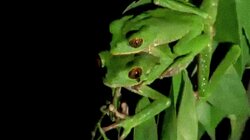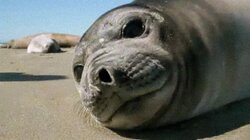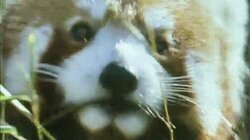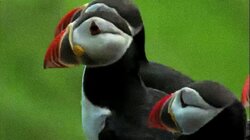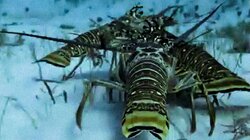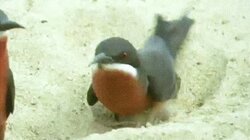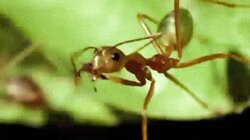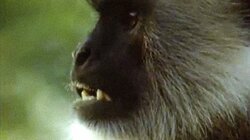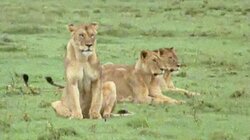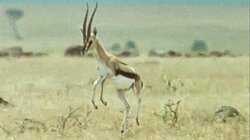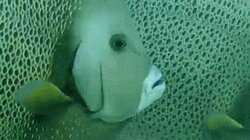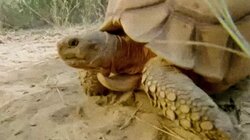Season 1
Episode: 1x01 | Airdate: Oct 4, 1990
Birth - the first dangerous step into a hazardous world. From egg-laying to live-bearing, animals employ an extraordinary variety of techniques to disperse their offspring. Mothers with youngsters who devour their internal organs. Pregnant males. Babies which themselves give birth before adulthood. Hot crocodile eggs which become males and cool ones which turn into females. The diverse strategies have a simple aim - to launch their young with a good chance of progressing on the long, or short, road to reproducing.
Episode: 1x02 | Airdate: Oct 11, 1990
Any parent knows about the problems of bringing up a child, and for animals it is no different. How do you protect your infant from daily hazards, care for it in a busy schedule, and help it survive thevulnerable years to achieve independence? How does an infant learn the skills it will need for life? From creches of bats to elephant babysitters, from chimpanzee games to protective lacebugs, nature's answers are as varied as those in human societies.
Episode: 1x03 | Airdate: Oct 18, 1990
David Attenborough looks at the problem of finding food, and the ingenious ways animals have of getting through the lean season, discovering that it is a devious business requiring exploitation and even theft. While plants try to defend themselves from unwelcome visitors, animals have devised numerous ways to break down the defences.
Episode: 1x04 | Airdate: Oct 25, 1990
Kill or die. Flee or perish. Such life and death duels are fought daily in the wild. Every conceivable trick is used by hunter and hunted - traps and lures, warnings and deception, ambush and camouflage. An orchid turns out to be a predatory flower mantis. Caterpillars look like snakes. In Patagonia, killer whales ambush sea-lions in the surf. These desperate battles between assassins and their victims have sharpened the skills of both in the art of pursuit and evasion.
Episode: 1x05 | Airdate: Nov 1, 1990
A tiny ant makes marathon journeys over the scorching desert. An albatross flies 800 miles over open ocean before returning with food for its chick. Hundreds of lobsters march in columns over the seabed to avoid storms. All find their way with an accuracy that we have only recently achieved.
Episode: 1x06 | Airdate: Nov 8, 1990
The animals building trade has craftsmen and cowboys too. Eager to cut corners on building costs, cliff swallows renovate and reuse last year's nests, unneighbourly shags steal materials from next door, andhermit crabs aggressively play the housing market. Expertly engineered, the most desirable dwellings boast air-conditioning, solar heating and defensive moats. But whether building a simple sandy burrow or a massive termite city, the aim of every animal architect is to keep the elements, and unwanted visitors, out.
Episode: 1x07 | Airdate: Nov 15, 1990
David Attenborough looks at how, for better or worse, many animals form surprising partnerships. Birds rid larger animals of itchy hangers-on, hermit crabs enlist stinging anemones to repel predatory octopuses and others use their hosts in less benign ways.
Episode: 1x08 | Airdate: Nov 22, 1990
Fight or flee? Resist or surrender? Aggression over food, territory or mates is widespread in animals. But teeth, hooves, horns and spines can cause severe injury and sometimes death. So zebras in theSerengeti, moose in Alaska and even bizarre stalk-eyed flies in Malaysia assess their opponent's prowess and choose to fight depending on what they stand to lose or gain. And despite the proliferation of weapons in nature's trials of strength, many disputes are settled without a blow being struck. Risking injury is the last resort. Written and presented by Sir David Attenborough.
Episode: 1x09 | Airdate: Nov 29, 1990
David Attenborough examines how, in the animal kingdom, recognising friends and respecting the power of rivals is vital.
For baboons, it is not how big they are but who they know that counts, whilst chickens need to know their place in the farmyard peck order. But there are unlikely friendships too. Vampire bats not only scratch one another's backs but also share their grisly meals of blood. When millions of sister insects work together, slavishly serving their queen, the resultant superorganism dominates the forest.
Episode: 1x10 | Airdate: Dec 6, 1990
David Attenborough examines the methods of communication in the animal kingdom. The love song of a fish keeps the inhabitants around San Francisco Bay awake, the river banks in Malaysia teem with millions of tiny beetles and the world's loudest birds scream through the rainforest.
Episode: 1x11 | Airdate: Dec 13, 1990
David Attenborough examines courtship rituals in the animal kingdom. Animals have developed lots of techniques for impressing potential mates - singing, offering presents, showing off their strength and beauty - for successful courtship means the chance to become a parent.
Episode: 1x12 | Airdate: Dec 20, 1990
David Attenborough looks at the many and varied ways that animals ensure their genes are passed on to the next generation.
Creatures will go to any lengths in order to make babies - to continue the line by passing on genes is the ultimate triumph.
Specials
Episode: S01 Special | Airdate: Nov 24, 1990



